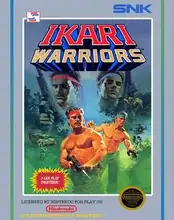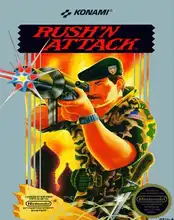Stepping back into the world of retro gaming often means revisiting genres that feel a little different today. While modern gaming gives us hyper-realistic shooters and massive online battles, the war games of yesteryear offered a different kind of conflict. They were about strategy, resource management, careful planning, and sometimes, just trying to figure out that clunky interface before the enemy nuked your capital.
For many of us who grew up with 8-bit, 16-bit, and early PC gaming, "war games" weren't just about twitch reflexes. They were about commanding armies from afar, simulating historical conflicts, or delving into fictional tactical scenarios that tested your brain more than your trigger finger. Let's dust off those old hard drives (or fire up DOSBox!) and take a trip back to the pixelated front lines.
What "War Games" Meant in the Retro Era
When we talk about retro war games, we're generally looking at a few key subgenres that dominated the scene before 3D graphics took over:
- Grand Strategy: Games focused on managing entire nations, economies, and military campaigns over vast periods (think Civilization).
- Tactical Combat: Smaller-scale battles where positioning, unit types, and terrain were crucial (X-COM, Jagged Alliance).
- Simulation: Detailed recreations of specific vehicles or battles, often with complex controls (Falcon 3.0, Red Storm Rising).
- Wargames (Traditional): Digital adaptations of classic hex-and-counter or turn-based board wargames (Panzer General).
These weren't always the flashiest titles, but they offered incredible depth and replayability. They demanded patience, learning complex systems, and the satisfaction of executing a perfect plan.
Booting Up the Past: Classic Retro War Games
It's impossible to list every single great retro war game, but here are a few heavy hitters that defined the genre for many of us:
Strategic Masterminds
Remember spending hours trying to build the Pyramids or conquer Gandhi's nuclear-armed civilization?
- Civilization (1991): Sid Meier's masterpiece wasn't strictly a "war game," but conflict was a huge part of its 4X (eXplore, eXpand, eXploit, eXterminate) formula. Starting with a single settler and ending up with tanks or even spaceships was an epic journey every time.
- Panzer General (1994): A fantastic, accessible entry into traditional hex-and-counter wargaming. Easy to learn, but with deep strategic possibilities across various World War II scenarios. The unit upgrade system was incredibly satisfying.
- Master of Orion II: Battle at Antares (1996): Taking the 4X formula to space, MOO2 offered deep empire management, diplomacy, and ship design alongside tactical starship combat. A true time sink.
Tactical Skirmishes
Sometimes you wanted to get closer to the action, albeit from a strategic overhead view.
- X-COM: UFO Defense (1994): Part global strategy, part brutal turn-based tactical combat against alien invaders. The tension of a night mission or the dread of losing your best soldier was unmatched. This game taught us permadeath before it was cool (or maybe it was cool then?).
- Jagged Alliance 2 (1999): Hiring a team of mercenaries and taking back a country, one sector at a time. JA2 combined quirky characters, detailed turn-based combat, and strategic management of resources and territory. Still has a dedicated fanbase today.
- Commandos: Behind Enemy Lines (1998): A real-time tactical game where stealth and careful planning were key. Controlling a small squad of specialists behind enemy lines felt like starring in your own war movie.
Simulation & Command
For those who wanted to experience the nitty-gritty of operating military hardware.
- Red Storm Rising (1988): A groundbreaking submarine simulation based on Tom Clancy's novel. Tracking Soviet subs across the Atlantic using sonar was incredibly tense and required serious dedication.
- Falcon 3.0 (1991): The gold standard for realistic combat flight simulation in its era. Learning to fly the F-16, manage radar, and engage targets felt like earning a pilot's license. Complex, but immensely rewarding.
The Enduring Appeal of Retro Conflict
Why do these old war games still hold a special place in our hearts?
- Strategic Depth: Many offered complex systems that modern games sometimes shy away from.
- Challenge: They didn't hold your hand. Failure was common, and overcoming a tough scenario felt like a real accomplishment.
- Historical/Fictional Immersion: They let you replay history or dive into fascinating alternate realities.
- Nostalgia: Pure and simple. The graphics, the sounds, the feeling of discovery back then.
Where to Find These Old Battlefields Today
Thankfully, many of these classic war games are still accessible:
- GOG.com (Good Old Games): A fantastic resource for DRM-free versions of many classic PC titles, often pre-configured to run on modern systems. Look for titles like Civilization, Panzer General, X-COM, and Jagged Alliance 2.
- DOSBox: A must-have emulator for playing old DOS-based games that aren't readily available elsewhere. Requires a bit more setup but opens up a huge library.
- Internet Archive: Hosts a vast collection of abandonware games that can often be played directly in your browser using emulation.
So, if you're looking for a different kind of gaming challenge, one that requires thought and planning over rapid reflexes, dive back into the world of retro war games. You might just find your next favorite campaign waiting for you.
FAQ About Retro War Games
Q: Are these old war games difficult to run on modern PCs? A: Many are available on platforms like GOG.com which have already done the work to make them compatible. For older DOS games not commercially available, you'll likely need an emulator like DOSBox.
Q: Are retro war games still worth playing today? A: Absolutely! While graphics are dated, the strategic depth, challenging gameplay, and historical or tactical scenarios offer experiences that are still engaging and often different from modern strategy games.
Q: Where can I learn more about the history of wargaming, both digital and physical? A: Beyond playing the games themselves, you can find books on video game history, articles discussing the evolution of strategy games, and even explore the roots in physical board wargames, like those inspired by H.G. Wells' "Little Wars."


